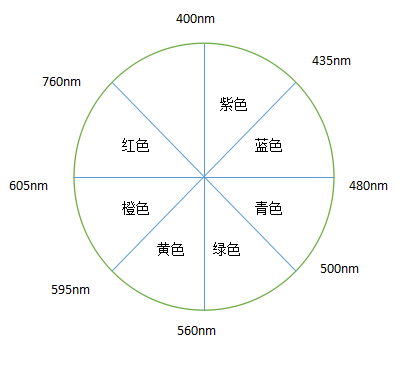智能波长测量仪毕业论文
2021-03-15 19:54:21
摘 要
光通信近年来发展迅速,有关波长测量技术的研究受到了前所未有的重视。但采用干涉、衍射测波长的传统技术存在着造价昂贵,操作繁琐,使用不便等弊端,难以应用到实际生活当中。为克服这些弊端,本文基于双光电二极管的PN结光生伏特效应,设计并制作了一种智能波长测量仪。
论文主要从系统设计和实验测试两部分来完成智能波长测量仪的制备。设计的测量系统由光波接收模块、电流比值模块、电压放大模块、负电压补偿模块、A/D转换模块和波长显示模块组成。根据系统设计购买元器件搭建仪器,在实验中找到了波长与电压关系,成功完成了仪器的制备。
本文的特色:设计制作的智能波长测量仪具有造价低,操作简单,携带方便,能智能地通过数码管显示出波长值等优点,配合滤光片使用能测得混合光的波长组成成分。测试中波长误差在1%以内。
关键词:波长测量;PN结光生伏特效应;双光电二极管;A/D转换
Abstract
In recent years, optical communication has developed rapidly, the study of wavelength measurement technology has received unprecedented attention. However, the traditional technology for measuring wavelengths using interference and diffraction has expensive, cumbersome operation, the use of inconvenience and other shortcomings, difficult to apply to the actual life. In order to overcome these shortcomings, the paper designs and manufactures an intelligent wavelength measuring instrument based on the PN junction of photovoltaic effect of dual photodiode.
The paper mainly from the system design and experimental testing two parts to complete the preparation of intelligent wavelength measuring instrument. The design of the measurement system consists of optical wave receiving module, current ratio module, voltage amplification module, negative voltage compensation module, A/D conversion module and wavelength display module. According to the design system to buy components to build equipment, in the experiment to find the relationship between wavelength and voltage, the successful completion of the preparation of the instrument.
The characteristics of the paper: The designed and prepared intelligent wavelength measuring instrument has the advantages of low cost, simple operation, easy to carry, intelligent display of wavelength value through digital tube, etc., with the optical filter can be used to measure the wavelength composition of mixed light. The wavelength error is within 1% of the test.
Key Words:Wavelength measurement;PN junction of photovoltaic effect;dual photodiode;A / D conversion
目 录
第1章 绪论 1
1.1 设计的目的及意义 1
1.2 国内外研究现状 2
1.3 课题研究内容及预期目标 3
第2章 波长测量方案的比较与选择 4
2.1 单色光波长测量方案的选择 4
2.2 混合光下光波测量方案的选择 6
第3章 波长测量系统的设计及原理 8
3.1 波长测量电路原理图 8
3.2 光波接收模块 10
3.2.1 光电效应 10
3.2.2 PN结 10
3.2.3 PN结光生伏特效应 11
3.2.4 双光电探测器 12
3.2.5 光波接收电路的设计 13
3.3 电流比值模块 14
3.4 电压放大模块 15
3.5 负电压补偿模块 16
3.6 A/D转换模块 17
3.7 波长显示模块 18
第4章 智能波长测量系统的搭建和实验测试 19
4.1 实验器材 19
4.2 模拟信号系统的搭建与测试 21
4.2.1 光波接收模块的搭建和测试 21
4.2.2 电流比值模块的搭建和测试 21
4.2.3 电压放大模块的搭建和测试 22
4.2.4 负电压补偿模块的搭建和测试 22
4.2.5 波长与模拟输出电压的关系 22
4.3 数字信号系统的搭建与仿真 25
4.3.1 A/D转换模块的搭建 26
4.3.2 单片机程序设计 26
4.3.3 软件仿真 26
4.4 波长测量 27
第5章 结论与展望 31
参考文献 33
致谢 34
附录 35
第1章 绪论
1.1 设计的目的及意义
光波,一般是指电磁波谱中的可见光,因为能被人眼所感知,所以称其“可见”。我们周围的物体之所以能呈现出不同的色彩,就是因为物体所反射出的可见光波长不同,而不同波长的可见光引起眼睛的颜色感觉会有所不同,大致呈现出红橙黄绿青蓝紫等颜色。
一般而言,眼睛可感知的光波波长在400nm~760nm之间,各波长范围对应的颜色如图1.1所示。





